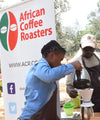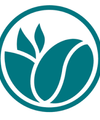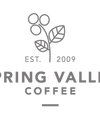You already know about my personal engagement in wildlife conservation in Kenya. The articles/blog posts I shared with you give you some background information regarding the daily life of rangers and explain the challenges they face in the bush as well as the challenges Raabia faces by running the Ulinzi Africa Foundation.
Today I want to introduce Ulinzi Conservation Coffee to you – my coffee brand with which I want to support the funding of my friends in Kenya and try to tackle some of the sustainable development goals 2030 in parallel.

Before I go into the details of the concept, I want to share my motivation with you! Following the golden circle logic from Markus Sinek I will explain the “How”, the “What” and the “Why”. Even though wildlife conservation and reforestation are noble causes to support, my personal “Why” goes beyond that.
For me it is about how I want to approach my life, what I want to achieve and what impact I want to have making the world better.
“I believe it’s important to work for a purpose, to contribute to something bigger ideally to chase a dream. We only live once so do it now or never”
(from my article "5 years, 17 countries, lessons learned" in 2017)
Therefore, I chose working for Lilium and therefore I founded Ulinzi Conservation Coffee in September 2019.
The preparation for that step goes back even further – I had the idea end of 2018. I started to read dozens of blogs and studies about coffee. From consumer behavior in different regions and countries to market segment studies, to coffee trends and information about coffee producing countries, harvesting, and processing techniques, to flavor profiles. Finally studies about purpose led brands.
After feeling comfortable enough to talk about coffee I asked IESE Business School if I can select a business idea for my Executive Challenge which I had to work on during my Program for Management Development which started in February 2019. During my modules in Munich and Barcelona I pitched my business idea for the first time in front of people. My peers
Anna,
Marcel,
Timo,
Nikolaus,
Xaver,
Martin,
Pedro and our coach
Pascual will certainly remember that it was a cold brew pitch and far from what it is today.
Motivated by the feedback I continued to work on the idea - from identifying farmers and roasters to website development, social media marketing, content creation, bag and label design, to so many topics I didn’t even consider before. I learned that it is ok to not have an answer immediately if I know how to educate myself about those topics and to find the solution on the way.
In September 2019 I registered my business and in December 2019 I flew to Kenya to meet potential supplier and partner which I only knew from WhatsApp and e-mail before. Please see below the first packaging design and samples I brought with me.

Here I am particularly grateful for the support from my friend Dhiren Chandaria and my first roasting partner Romal Shah. Especially Dhiren’s reaction to the first introduction video I produced about Ulinzi and the invitation to stay at his place during my Kenya trip made me believe even more in my idea.
After a test pitch in front of the IESE Entrepreneurship Club on February 2020 at IESE Munich Campus I was ready to introduce Ulinzi Conservation Coffee to the World.

Doing Good Doing Well 2020
On March 3rd 2020 Raabia and I introduced Ulinzi Conservation Coffee to a bigger audience, sold our first coffee samples (~ 17kg) at the marketplace and got lots of positive feedback and further business contacts.




The good feedback and especially the first sales of our product fueled my energy to continue following the path I have in mind.
Ulinzi Conservation Coffee and the Sustainable Development Goals 2030
The business idea originated by my motivation to support my friend Raabia Hawa and her organization to generate funding for the ranger team she deployed in the Tana River Delta area.
Ulinzi Conservation Coffee supports a good cause, so everything I do needs to match that noble cause!
This triggered several thoughts:
How do I interact with farmers, how much do I pay?
How “fair” is “fair trade”?
Advantages and disadvantages of certification labels like “organic”, “Rain Forrest Alliance Certified”, etc. (just to name a few)?
Which products do I want to offer?
What packaging material do I use?
Value creation in Kenya vs. shipping cost and carbon footprint impacts – what is better?
I started educating myself about those topics. The more I read about it, the more difficult it became. In all those discussions there are pros and cons. Beside the discussions about the topics mentioned above I also used the sustainable development goals 2030 as orientation.
What are the sustainable development goals 2030?

“The 2030 Agenda for Sustainable Development, adopted by all United Nations Member States in 2015, provides a shared blueprint for peace and prosperity for people and the planet, now and into the future. At its heart are the 17 Sustainable Development Goals (SDGs), which are an urgent call for action by all countries - developed and developing - in a global partnership. They recognize that ending poverty and other deprivations must go hand-in-hand with strategies that improve health and education, reduce inequality, and spur economic growth – all while tackling climate change and working to preserve our oceans and forests.”
The Company of the future must do well by doing good

In January 2020 I also read a World Economic Forum article perfectly summarizing my vision of Ulinzi Conservation Coffee.
With all this information I decided what I want Ulinzi Conservation Coffee to stand for.
Ulinzi Conservation Coffee – What we stand for!
-
Quality coffee products
-
Supporting wildlife conservation and reforestation – making sustainability mainstream
-
Everyone gets a fair share – contributing to a better world and making money are not in conflict with each other!
Ulinzi Conservation Coffee – How does it work?
- We sell coffee products and give 50% of our profits for ranger operations and wildlife conservation in Kenya. Our partner is the Ulinzi Africa Foundation East-Africa’s first nonprofit aiming at ranger empowerment, welfare, and facilitation. Its founder Raabia Hawa is also my business partner at Ulinzi Conservation Coffee.
-
Each sold coffee product finances projects to reduce CO2 whilst reforesting Kenya (5 seedlings planted per sold coffee product).
- Our partner is Seedballs Kenya which will support local seed selection trainings and community trainings regarding sustainable charcoal production and consumption. Considered projects will take place in the Tsavo area but mainly focusing on the Tana River Delta area. Additionally, we start projects with selected coffee farmers. Ulinzi Conservation Coffee acts as re-green partner while the Ulinzi Africa Foundation is a donor partner

COVID-19
The current situation with COVID-19 delayed our market entry due to creating planning insecurities for our customers and impacted our supply chain (getting coffee out of Kenya/compostable packaging material, etc.). I always try to find opportunities in such times of challenges, try to focus on positive things and help others with my positive mindset.
One of my first decisions was to share my coffee inventory with colleagues at work with the intention to brighten their day during the lockdown at home.
The preparation of the care packages was so much fun and the feedback I got was overwhelmingly positive. Colleagues already ask me for more and I have the positive pressure to get my product on the market.
My second decision was to critically analyze the current situation of Ulinzi Conservation Coffee and the vision I have for the business (i.e. finding answers to the questions mentioned above). In fact, having this “extra time” helped me making some decisions including the partners I want to work with, the coffee farmer I want to have coffee from, the decisions on the website and online shop design as well as the product portfolio and the bag design.
Spring Valley Coffee/Ulinzi Conservation Coffee partnership

I am incredibly happy about this partnership as Ritesh Doshi (CEO of Spring Valley Coffee) is one of my first coffee contacts in Kenya. I originally contacted him due to his Cold Brew ‘Conc’ (you remember I told you earlier, that my original idea was about a cold-brew brand). We met in his Café in July 2019 talking about business and the motivation behind. The most important factor for me when working with people is sharing the same mindset and values. Please watch this video from him which explains everything:
Our partnership with Spring Valley Coffee is more than a customer-supplier relationship. The video above shows how much value driven Ritesh is, same applies to his team. Everyone was exited and motivated once Ritesh shared the partnership with his team. From the teamwork developing the coffee sleeve design to the open conversation about market approaches, targeted distribution channels and cost and revenue transparency.
Below you see our co-branded product as part of Spring Valley’s product portfolio – with beans from David Maguta (I am super happy about that too as David’s coffee was the coffee I sold during the DGDW conference in Barcelona).
Ulinzi Conservation Coffee products will be available in Ritesh’s four Cafés including Wilson Airport in Nairobi and selected supermarkets and lodges in Kenya.
Beside the Kenyan market we will also export the products.
See below the post of our first customer in the US - thank you Lucas!
In the EU we will distribute our co-branded product as well as two additional products (one coffee and one espresso roast - which will be available in September)!
Always remember - a coffee a day keeps the poachers away
Cheers,
Steffen


















